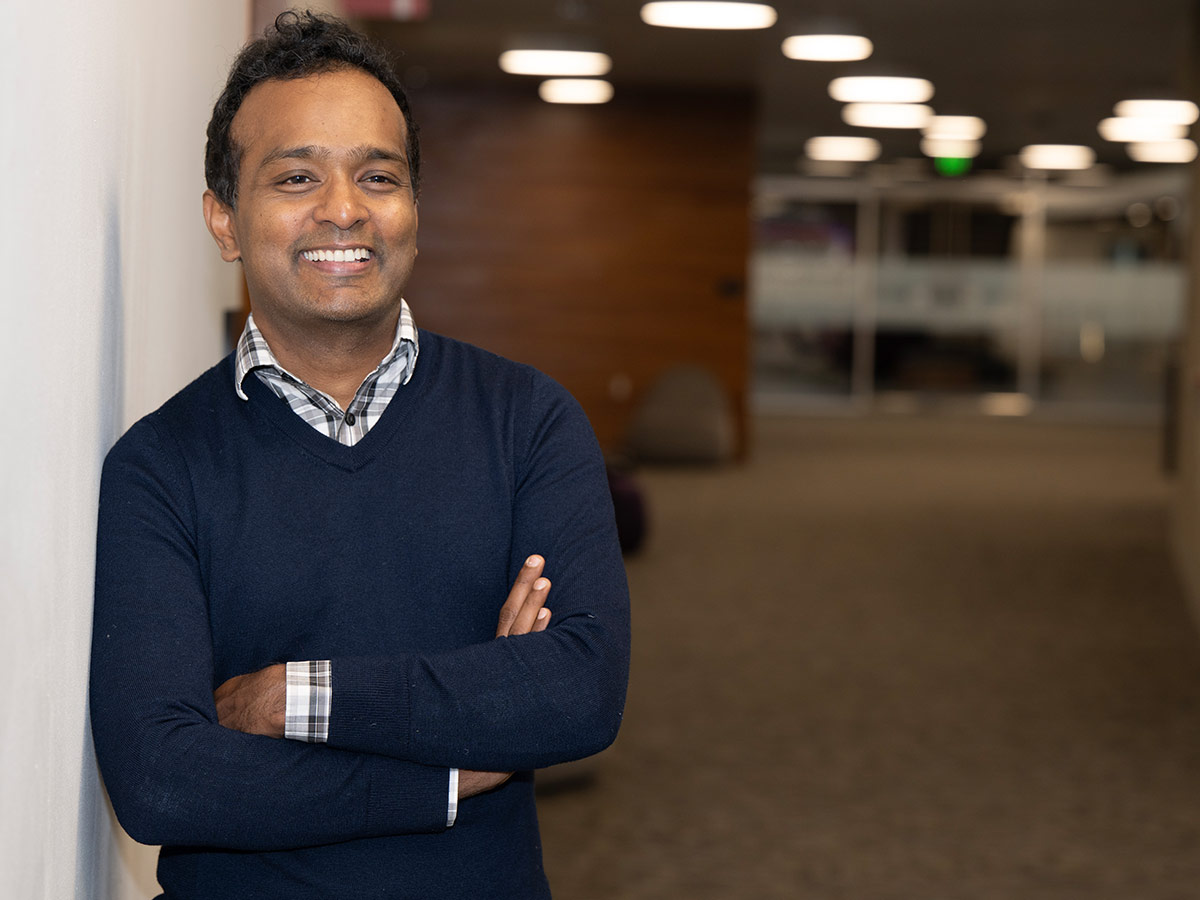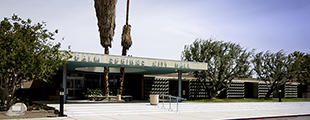-

Title: Waymo's Journey to Autonomous Driving Speaker: Andrew Chatham
Waymo
Abstract: Join us for a look into Waymo's 16-year journey to develop the World's Most Experienced Driver. We'll explore the history of autonomous driving, from our early days as a skunkworks project to our current service providing over 100,000 rides per week and over 10 million miles driven autonomously. We'll also delve into the inner workings of the Waymo Driver, including its hardware and software, and discuss the unique challenges and solutions we've encountered in serving users and shaping the future of transportation.
Biography: Andrew Chatham is a VP of Engineering at Waymo, an autonomous driving technology company with a mission to make it safe and easy for people and things to move around. Andrew is one of the earliest members of the team having joined what was then the secretive “Project Chauffeur” in 2009. Today he leads engineering teams at Waymo responsible for cloud, mapping, and infrastructure. Prior to Waymo, Andrew worked at Google in New York where he led teams which worked on instant indexing, the web crawler, and other infrastructure projects for Google's search engine. Andrew holds a bachelor of science in computer science and economics from Duke University.
-
TinyMem: Boosting Multi-DNN Inference on Tiny AI Accelerators with Weight Memory Virtualization
Changmin Jeon (Seoul National University), Taesik Gong (UNIST), Juheon Yi (Nokia Bell Labs), Fahim Kawsar (Nokia Bell Labs, University of Glasgow), Chulhong Min (Nokia Bell Labs)
-
GreenAuto: An Automated Platform for Sustainable AI Model Design on Edge Devices
Xiaolong Tu (Georgia State University), Dawei Chen (Toyota InfoTech Labs), Kyungtae Han (Toyota InfoTech Labs), Onur Altintas (Toyota InfoTech Labs), Haoxin Wang (Georgia State University)
-
ContextLLM: Meaningful Context Reasoning from Multi-Sensor and Multi-Device Data Using LLMs
Kevin Post (University of Tartu), Reo Kuchida (University of Tartu), Mayowa Olapade (University of Tartu), Zhigang Yin (University of Tartu), Petteri Nurmi (University of Helsinki), Huber Flores (University of Tartu)
-
Eros: Real-time Dense Mapping Made Easy on Mobile Devices
Yubin Dai (Zhejiang University), Bin Qian (Zhejiang University), Yangkun Liu (Zhejiang University), Yuxuan Yan (Zhejiang University), Yuanchao Shu (Zhejiang University)
-
SensorBench: Benchmarking LLMs in Coding-Based Sensor Processing
Pengrui Quan (UCLA), Xiaomin Ouyang (HKUST), Jeya Vikranth Jeyakumar (Nvidia), Ziqi Wang (Qualcomm), Yang Xing (UCLA), Mani Srivastava (UCLA)
-
Using Radar for Edge-based Live Learning
Eric Sturzinger (Carnegie Mellon University), Jan Harkes (Carnegie Mellon University), Netanel Yannay (IAI), Ari Granevich (IAI), Gil Goldman (Carnegie Mellon University), Mahadev Satyanarayanan (Carnegie Mellon University)
-
VitalHide: Enabling Privacy-Aware Wireless Sensing of Vital Signs
Yixuan Gao (Cornell Tech), Tanvir Ahmed (Cornell Tech), Zekun Chang (Cornell Tech), Thijs Roumen (Cornell Tech), Rajalakshmi Nandakumar (Cornell Tech)
-
Towards Scalable and Cost-Effective RAN Emulation Leveraging the Public Cloud
Ujjwal Pawar (The University of Edinburgh), Andrew E. Ferguson (The University of Edinburgh), Yuto Takano (The University of Edinburgh), Jon Larrea (The University of Edinburgh), Xenofon Foukas (Microsoft Research), Mahesh K. Marina (The University of Edinburgh), Bozidar Radunovic (Microsoft Research)
-
A Peek into 5G NSA vs. SA Control Plane Performance
Rostand A. K. Fezeu (University of Minnesota - Twin Cities), Jason Carpenter (University of Minnesota - Twin Cities), Eman Ramadan (University of Minnesota - Twin Cities), Faaiq Bilal (University of Minnesota - Twin Cities), Ziyan Wu (University of Minnesota - Twin Cities), Nanditha Naik (University of Minnesota - Twin Cities), Duncan Joly (University of Minnesota - Twin Cities), Dehkontee Chea Cuppah (University of Minnesota - Twin Cities), Zhi-Li Zhang (University of Minnesota - Twin Cities)
-
On NextG Open RAN as a Sensing Infrastructure
Qingrui Pan (The University of Edinburgh), Mahesh K. Marina (The University of Edinburgh), Thanos Triantafyllou (The University of Edinburgh)
-
The Future of the Industrial AI Edge is Cellular
Xenofon Foukas (Microsoft), Bozidar Radunovic (Microsoft)
-

Title: Creating super-hearing capabilities with real-time AI Speaker: Shyam Gollakota, Professor
Paul G. Allen School of Computer Science & Engineering at the University of Washington
Abstract: In noisy environments, human auditory perception can be limited. Imagine yourself in a crowded room with a cacophony of sounds, yet having the ability to focus on specific sounds or remove unwanted ones based on their semantic descriptions. This capability entails understanding and manipulating an acoustic scene, isolating each sound, and associating a 2D spatial context or semantic meaning with each individual sound -- a formidable challenge even for the human brain. In this talk, I will showcase a series of projects that aim to enhance human auditory perception using AI. I will demonstrate how AI can augment humans to tackle tasks that are difficult for the human auditory system alone. Lastly, I will speculate on the future of augmented intelligence and how we are on the brink of a new era for intelligent mobile systems. These systems have the potential to turn science fiction into reality and revolutionize various domains, from redefining the future of billions of earbuds and headphones.s.
Biography: Shyam Gollakota is a Washington Research Foundation endowed Professor at the Paul G. Allen School of Computer Science & Engineering in the University of Washington. His work has been licensed by ResMed Inc, our startup Sound Life Sciences acquired by Google, and is in use by millions of users. He was also CEO of a startup where we obtained FDA 510(k) clearance for the technology developed in my lab. His lab also worked closely with the Washington Department of Agriculture to wirelessly track invasive "murder" hornets, which resulted in the destruction of the first nest in the United States. He is the recipient of the ACM Grace Murray Hopper Award in 2020, a Moore Inventor Fellow in 2021 and more recently the InfoSys prize in 2024. He was also named in MIT Technology Review's 35 Innovators Under 35, Popular Science 'brilliant 10' and twice to the Forbes' 30 Under 30 list. His group's research has earned Best Paper awards at MOBICOM, SIGCOMM, UbiComp, SenSys, NSDI and CHI, appeared in interdisciplinary journals like Nature, Nature Communications, Nature Biomedical Engineering, Science Translational Medicine and Science Robotics as well as named as a MIT Technology Review Breakthrough technology of 2016 as well as Popular Science top innovations in 2015. He is an alumni of MIT (Ph.D., 2013, winner of ACM doctoral dissertation award) and IIT Madras.
-
RFBridge: Ultra Wideband Reconfigurable Metamaterial Surface Enabling Frequency Conversion
Yawen Liu (Carnegie Mellon University), Shivang Aggarwal (Hewlett Packard Labs), Mohamed Ibrahim (Hewlett Packard Labs), Puneet Sharma (Carnegie Mellon University), Swarun Kumar (Carnegie Mellon University)
-
Exploring Intelligent Dynamic Resource Provisioning for Elastic Massive MIMO vRAN
Parthiban Annamalai (Yale University), Minsung Kim (Rutgers University), Anurag Khandelwal (Yale University), Lin Zhong (Yale University)
-
Is WTSN the Missing Piece for Low Latency in General-Purpose Wi-Fi?
Milind Kumar Vaddiraju (University of Illinois Urbana-Champaign), William Sentosa (University of Illinois Urbana-Champaign), Qinjun Jiang (University of Illinois Urbana-Champaign), Sarita Adve (University of Illinois Urbana-Champaign), Dave Cavalcanti (Intel Corporation), Dibakar Das (Intel Corporation), P. Brighten Godfrey (University of Illinois Urbana-Champaign, Broadcom), Javier Ramirez-Perez (Ofinno), Deepak Vasisht (University of Illinois Urbana-Champaign)
-
Can We Make FCC Experts Out of LLMs?
Atul Bansal (Carnegie Mellon University), Veronica Muriga (Carnegie Mellon University), Jason Li (Carnegie Mellon University), Lucy Duan (Carnegie Mellon University), Swarun Kumar (Carnegie Mellon University)
-
RheelPower: Advancing Automotive IoT via Non-Invasive Power Generation from Rotating Vehicle Wheels
Hojun Choi (University of Nebraska Lincoln), Liang He (University of Nebraska Lincoln)
-
Make Way for Ducklings: Centering Data Files in Sensor Networks
Tess Despres (UC Berkeley), Prabal Dutta (UC Berkeley), Sylvia Ratnasamy (UC Berkeley)
-
BioPulse: Towards Enabling Perpetual Vital Signs Monitoring Using a Body Patch
C. Rajashekar Reddy (National University of Singapore), Vivian Dsouza (TU Delft), Ashok Samraj Thangarajan (Nokia Bell Labs, Cambridge), Przemysław Pawełczak (TU Delft), Fahim Kawsar (Nokia Bell Labs, Cambridge, University of Glasgow), Alessandro Montanari (Nokia Bell Labs, Cambridge)
-
Advancing Immersive Content Delivery with Dynamic 3D Gaussian Splatting
Nam Wu (George Mason University), Weikai Lin (University of Rochester), Ruizhi Cheng (George Mason University), Bo Chen (University of Illinois at Urbana-Champaign), Yuhao Zhu (University of Rochester), Klara Nahrstedt (University of Illinois at Urbana-Champaign), Bo Han (George Mason University)
-
Spatial Video Streaming on Apple Vision Pro XR Headset
Guodong Chen (Northeastern University), Sizhe Wang (Northeastern University), Jacob Chakareski (New Jersey Institute of Technology), Dimitrios Koutsonikolas (Northeastern University), Mallesham Dasari (Northeastern University)










